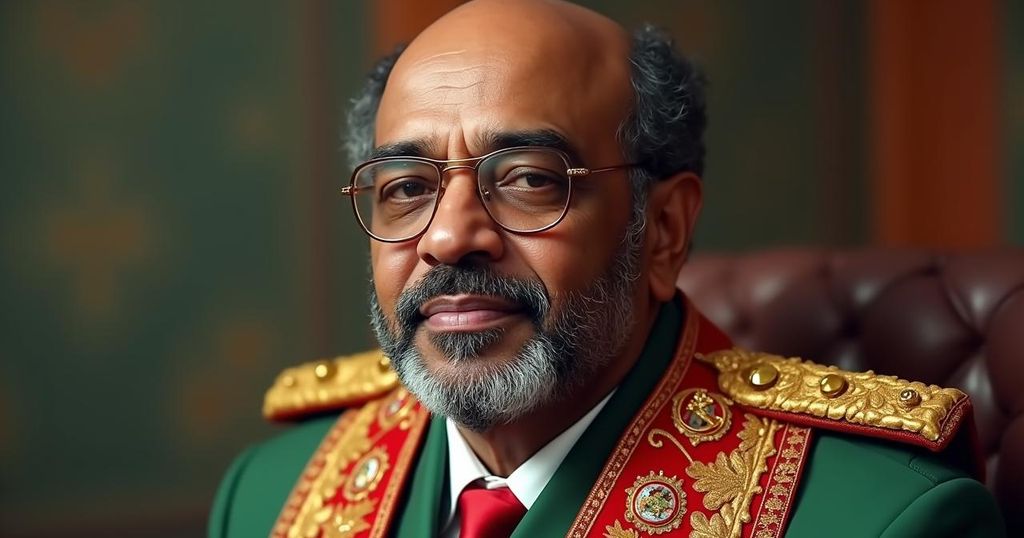Omar al-Bashir, born on January 7, 1944, in Sudan, led a military coup in 1989, ruling as president until 2019. His regime faced significant internal dissent, particularly related to the conflict in Darfur and ongoing economic struggles. Al-Bashir was ousted during mass protests and is currently facing corruption charges and international scrutiny for war crimes and genocide. His legacy highlights the challenges of military rule and the quest for stability within Sudan.
Omar Hassan Ahmad al-Bashir, born on January 7, 1944, in Hosh Wad Banaqa, Sudan, is a Sudanese military officer who orchestrated a coup in 1989, toppling the elected government and subsequently serving as president of Sudan from 1993 until his ousting in 2019. Al-Bashir’s early life was marked by humble beginnings, growing up in a peasant family before moving to Khartoum, where he completed his education and entered military service. He rapidly progressed through the ranks, particularly noted for his role in the Sudanese army’s offensive against the southern Sudan People’s Liberation Army (SPLA) during the 1980s. Following his coup, al-Bashir established a military regime, dissolved the parliament, and banned political parties. He implemented Islamic law in 1991, further amplifying divisions between the predominantly Muslim north and the southern regions, which were primarily animist and Christian. As president, al-Bashir’s regime faced ongoing conflict with the SPLA, prompting a tenuous peace agreement in 2005. However, his administration’s military responses to the Darfur rebellion, which started in 2003, garnered international condemnation, especially due to the alleged war crimes and genocide committed against civilians, leading to multiple arrest warrants from the International Criminal Court (ICC). Al-Bashir’s presidency was characterized by increasing unrest and dissatisfaction among the populace, largely due to economic hardships and ongoing civil conflicts. Despite being re-elected under disputed circumstances in 2010 and 2015, public protests against his regime intensified from December 2018, culminating in his arrest during a military coup on April 11, 2019. Following his removal from power, al-Bashir faced corruption charges and an ongoing series of legal proceedings related to his time in office and the initial coup that elevated him to power. He is currently serving a two-year sentence in a reform facility, as mandated by Sudanese law regarding his age, while also facing further allegations related to his rule. Thus, Omar al-Bashir’s tenure exemplifies a complex interplay of military rule, prolonged civil conflict, and the struggle for political legitimacy, highlighting a pivotal period in Sudan’s modern history.
Omar al-Bashir’s rise to power is emblematic of Sudan’s turbulent political landscape, marked by military coups and civil strife. His governance saw the brutal repression of dissent and severe human rights violations, particularly in Darfur, which attracted global scrutiny. Al-Bashir’s implementation of Islamic law was a significant turning point in Sudanese governance, reflecting tensions between different cultural and religious groups within the country. The International Criminal Court’s involvement added an international dimension to his administration’s controversies and the ensuing resistance against his rule, setting the stage for widespread protests and eventual overthrow. His fall from grace underscores the challenge of maintaining authority in the face of popular discontent fueled by economic hardship and civil rights violations.
Omar al-Bashir’s the presidency encapsulates a significant and controversial chapter in Sudan’s history, characterized by military dominance, civil unrest, and allegations of severe human rights abuses. His ousting in 2019 marked a turning point for the nation, as it faced substantial challenges in transitioning towards a more democratic governance structure. The legacy left by al-Bashir serves as a reminder of the complexities faced by nations grappling with the repercussions of authoritarian rule, economic instability, and the quest for social justice.
Original Source: www.britannica.com






